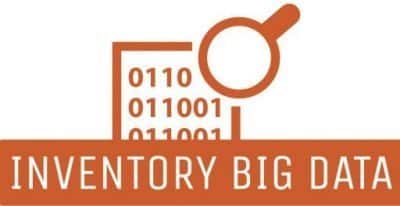Description
Supply Chain Director: Definition
Supply Chain Director: A professional responsible for overseeing and managing the entire supply chain of an organization. This includes coordinating the flow of goods, services, and information from the point of origin to the point of consumption.
Pronunciation
The phrase “supply chain director” is pronounced as /səˈplaɪ tʃeɪn dəˈrektər/. It consists of three parts: ‘supply’, which rhymes with ‘apply’; ‘chain’, which sounds like ‘gain’; and ‘director’, where the ‘di’ sounds like ‘dee’, ‘rect’ sounds like ‘wrecked’, and the ending ‘-or’ is pronounced with a schwa sound, similar to the ‘a’ in ‘sofa’.
Alternative Spellings
Supply-Chain Director Supply Chain Manager
Origin of the Word
The term “supply chain director” originates from the evolution of logistics and supply management roles within businesses. Historically, the role was crucial in ensuring the seamless movement of goods and information, evolving with the complexities of global trade to encompass strategic management, logistics, procurement, and supply chain optimization.
Role in Modern Organizations
A supply chain director plays a pivotal role in modern businesses, responsible for managing and optimizing the end-to-end supply chain process. This includes strategic planning, procurement, logistics, and maintaining optimal inventory levels to meet business demands efficiently.
Responsibilities
The specific responsibilities of a supply chain director can vary depending on the size and nature of the organization, but some common responsibilities include:
- Developing and implementing strategies to optimize the supply chain.
- Managing budgets and financial reports related to the supply chain.
- Negotiating contracts with suppliers and partners.
- Coordinating logistics and transportation.
- Overseeing the procurement and sourcing of raw materials and finished goods.
- Analyzing data and making recommendations for improvements to the supply chain.
- Developing and maintaining relationships with key stakeholders in the supply chain, including suppliers, customers, and partners.
- Managing and developing a team of supply chain professionals.
Skills and Qualifications
Some common skills and qualifications required for a supply chain director include:
- Strong leadership and management skills.
- Excellent communication and interpersonal skills.
- Good analytical and problem-solving skills.
- Experience in supply chain management or a related field.
- Knowledge of business principles and financial management.
- A bachelor’s or master’s degree in supply chain management, business, or a related field.
- Industry-specific certifications, such as the Certified Supply Chain Professional (CSCP) or the Certified in Production and Inventory Management (CPIM).
Working Conditions
Supply chain directors typically work in an office setting, but may also travel for meetings or to visit suppliers or other partners. They may be required to work long or irregular hours, depending on the needs of the organization.
Salary
The salary of a supply chain director can vary widely depending on the location, size of the organization, and the individual’s level of experience and education. According to Glassdoor, the median annual salary for a supply chain director is approximately $YY,XXX as of 2021.
Examples of Use in Sentences
- The supply chain director successfully implemented a new logistics strategy, reducing transportation costs by 15%.
- As the supply chain director, she negotiated favorable terms with new suppliers, ensuring a steady flow of raw materials.
- The supply chain director analyzed performance metrics to identify inefficiencies and improve overall supply chain operations.
- Under his leadership, the supply chain team achieved a record-high inventory turnover rate, optimizing stock levels.
Synonyms
- Supply Chain Manager: Overseer of supply chain operations.
- Logistics Director: Director of logistics management.
- Procurement Director: Director of procurement activities.
- Inventory Director: Director of inventory management.
- Operations Director: Director of supply chain operations.
- Distribution Director: Director of distribution processes.
History of the Role
The role of a “supply chain director” has evolved significantly with advancements in technology and the globalization of trade. Initially focused on logistics and procurement, it has expanded to encompass strategic planning, data analysis, and comprehensive supply chain management.
Definitions for Young Readers
A person who manages the process of getting goods from where they are made to where they are needed. An individual responsible for making sure products are available for customers when they want them.
Functional Links
- Procurement Department: Coordinating the acquisition of goods and materials.
- Sales and Marketing Teams: Providing stock availability updates and managing inventory needs based on sales forecasts.
- Quality Control: Working together to ensure received goods meet quality standards.
- Logistics and Distribution: Coordinating the dispatch of goods and managing logistics.
- Finance and Accounting: Reporting on stock levels for financial records and budgeting.
- IT Department: Collaborating on the management of inventory systems and troubleshooting technical issues.
- Human Resources: Engaging in training and compliance with labor safety standards.
- Customer Support: Addressing concerns related to product availability and specifications.
- Maintenance Team: Ensuring equipment used in the warehouse is in good working order.
- Security Personnel: Coordinating on security measures within the warehouse.
- Factory Worker: Contributing to the production process and ensuring efficient handling of goods within the factory.
Hierarchical Links
- Reports to: Chief Operations Officer or Chief Supply Chain Officer – The immediate supervisor responsible for overseeing the activities of the Supply Chain Director.
- Supervises: Supply Chain Managers and Team Leads – Junior staff working under the supervision of the Supply Chain Director.
- Interacts with: Senior Management – For strategic decisions involving inventory and supply chain matters.
- Lateral Reporting: Operations Manager – In some organizational structures, the Supply Chain Director might also report operationally to the Operations Manager for day-to-day activities.
Skills and Competencies
- Organizational Skills: Managing tasks and resources efficiently.
- Technical Skills: Using technical tools and software.
- Communication Skills: Exchanging information effectively.
- Problem-Solving Skills: Addressing and resolving issues.
- Detail Orientation: Paying attention to small details.
- Time Management: Managing time effectively.
- Decision Making: Choosing among various options.
- Teamwork: Working collaboratively with others.
- Leadership Skills: Leading and managing teams.
- Adaptability: Adjusting to new conditions.
- Analytical Skills: Analyzing information and making conclusions.
Tools and Technologies
- ERP Systems: Integrated management software.
- Database Management Tools: Tools for data organization and access.
- Bar Code Scanners: Devices for reading barcodes.
- RFID Technology: Radio-frequency identification for tracking.
- Inventory Management Software: Software for inventory control.
- Warehouse Management Systems (WMS): Software to manage warehouse operations.
- Material Handling Equipment: Equipment for handling materials.
- Supply Chain Management Software: Software for managing the supply chain.
- Forecasting Tools: Tools for predicting inventory needs.
- Logistics Software: Software for managing logistics operations.
- Data Analysis Tools: Tools for analyzing business data.
Regulatory and Safety Terms
- Workplace Safety Standards: Guidelines for safety at work.
- Compliance: Following legal and regulatory standards.
- Industry Standards: Accepted norms in the industry.
- Occupational Health: Concerning workers’ health.
- Safety Protocols: Procedures for ensuring safety.
- Environmental Regulations: Laws related to environmental protection.
- Quality Assurance: Ensuring product or service quality.
- Risk Management: Managing potential risks.
- Labor Laws: Laws governing worker relations.
- Safety Training: Training in safety practices.
- Regulatory Compliance: Adherence to rules set by authorities.
Similar and Related Words
- Logistics: Management of the flow of things between points.
- Supply Chain Management: Coordination of supply chain activities.
- Distribution: Spreading goods across various outlets.
- Procurement: Process of acquiring goods or services.
- Freight Handling: Dealing with the transportation of goods.
- Shipment: Act of sending goods.
- Inventory Turnover: Rate at which inventory is used.
- Order Processing: Handling customer orders.
- Supply Planning: Planning for supply needs.
- Inventory Optimization: Balancing inventory levels optimally.
- Material Requirements Planning (MRP): Planning for material needs.
Useful Online Resources for Supply Chain Directors
- Wikipedia entry on Supply Chain Management – A general overview of the role and duties of a supply chain director.
- Council of Supply Chain Management Professionals (CSCMP) – Provides educational resources and networking opportunities relevant to supply chain directors.
- Supply Chain Digest – Features articles and case studies that are insightful for supply chain directors in various industries.
- Institute for Supply Management (ISM) – Offers training and certification programs for supply management, beneficial for supply chain directors seeking professional development.
- Materials Handling Institute (MHI) – Provides updates on technologies and practices in materials handling essential for supply chain directors.




